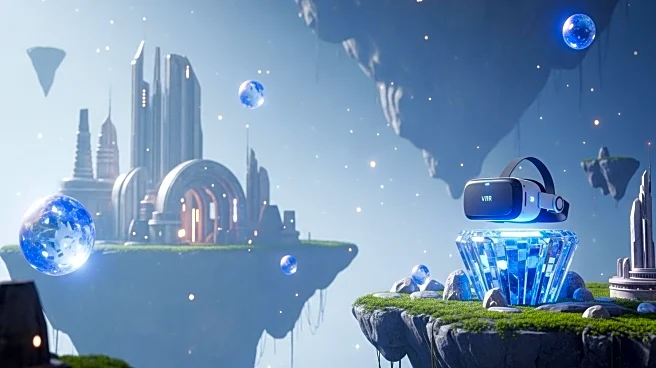What's Happening?
Q-Games has released 'Dreams of Another,' a philosophical adventure game that explores the theme of 'no creation without destruction.' The game is available on PlayStation VR2 and Steam, though it lacks PC VR support. Despite its intriguing narrative and creative visuals, the game faces criticism for its slow pacing and inconsistent VR support. Players navigate through four interconnected stories, each symbolizing themes like coming of age and taking action. The game employs a unique visual style, using bubbles to create a dreamlike world, but suffers from repetitive gameplay and frequent camera perspective shifts that disrupt immersion.
Why It's Important?
The release of 'Dreams of Another' highlights the challenges faced by developers in integrating VR technology into gaming experiences. While VR offers enhanced interactivity and immersion, the game's inconsistent support and frequent perspective shifts may deter players seeking a seamless VR experience. This development underscores the need for thoughtful VR integration to maintain player engagement and satisfaction. As VR technology continues to evolve, developers must balance creative storytelling with technical execution to fully leverage the potential of VR in gaming.
What's Next?
Players and critics may continue to evaluate 'Dreams of Another' as they explore its narrative and gameplay mechanics. Feedback from the gaming community could influence future updates or patches to improve VR support and address pacing issues. Additionally, Q-Games may consider these critiques in the development of future projects, potentially refining their approach to VR integration. The game's reception could also impact the broader VR gaming industry, encouraging developers to prioritize seamless VR experiences in their designs.
Beyond the Headlines
The game's exploration of philosophical themes through interactive storytelling may inspire discussions on the role of video games in conveying complex ideas. 'Dreams of Another' challenges players to consider different perspectives and the symbolic nature of creation and destruction, potentially influencing how games are perceived as a medium for artistic expression. This could lead to a broader acceptance of video games as a legitimate form of cultural and philosophical exploration.










